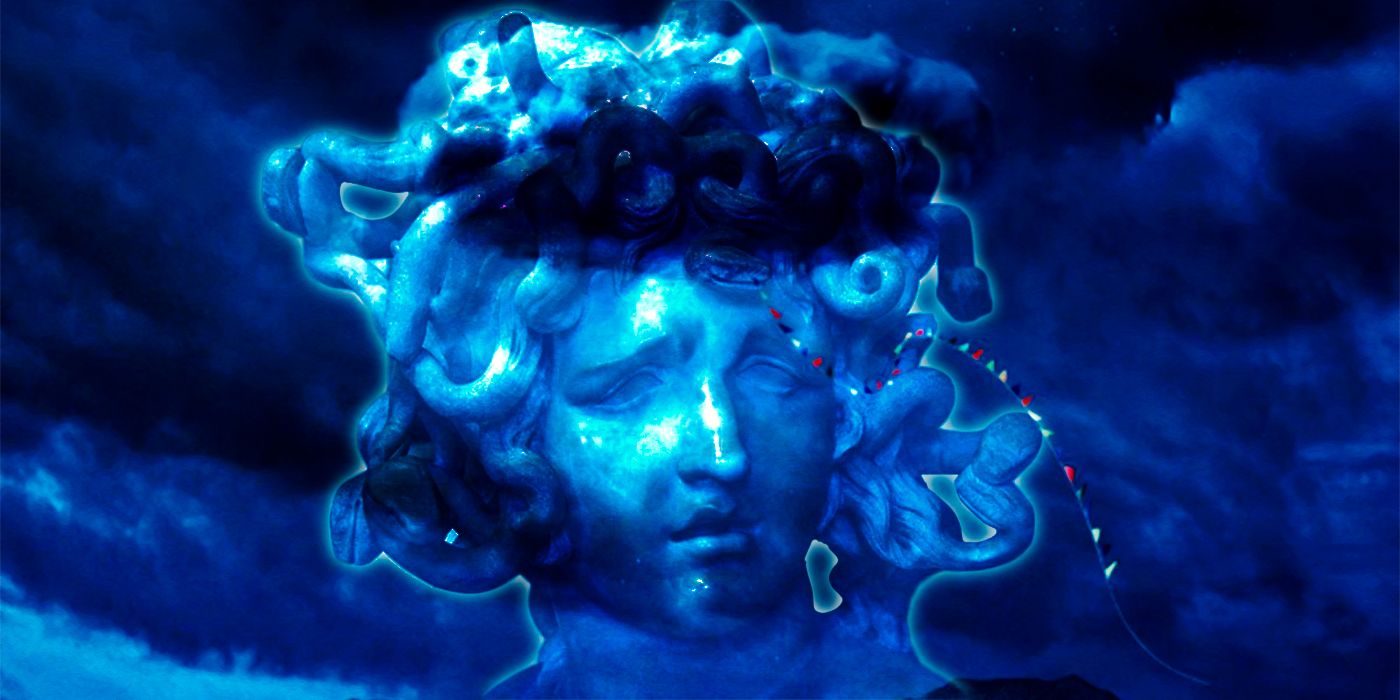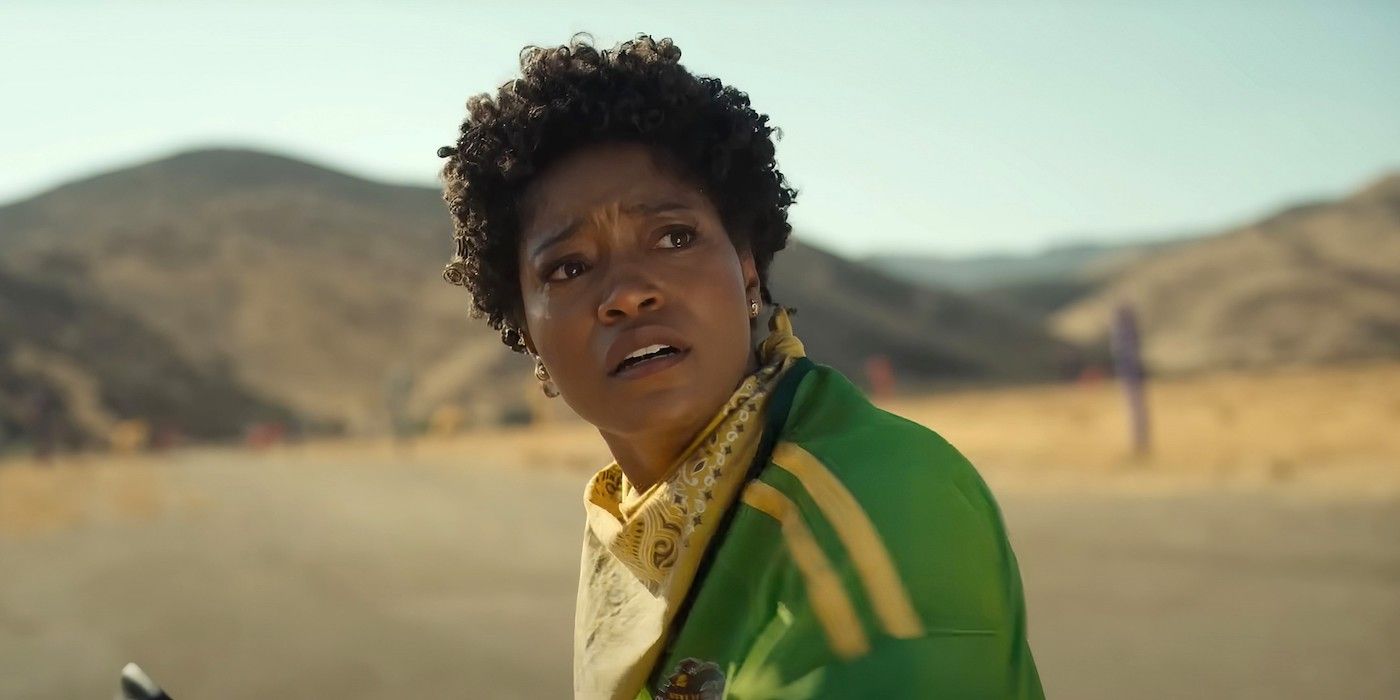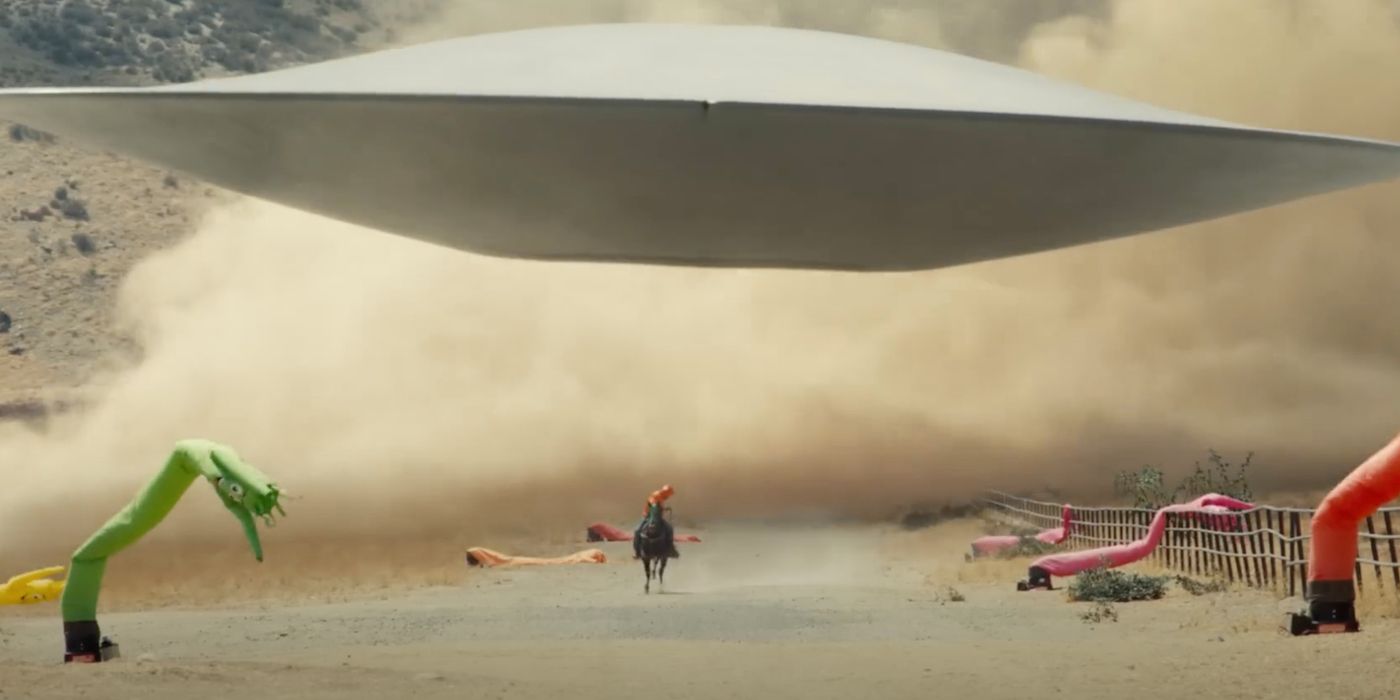The following article contains spoilers for Nope, now playing exclusively in theaters.
When marketing for Jordan Peele's new sci-fi film Nope began in early 2022, speculation about how it would tie into his filmography of horror flicks about racial issues kicked up in full swing. In fact, when moviegoers think of Peele, they probably think of his Academy Award for Best Original Screenplay for Get Out. But if not recognized for his work in the horror genre, it’s for his long career in comedy as one half of the comedy duo Key and Peele, where he and Keegan Michael Key used jokes to discuss the whole gamut of social topics like race and gender. And while Nope does use comedy and take notes from the horror genre, it's telling a much more heroic and uplifting story that borrows from the classics in a major way.
While main characters Otis Jr. and Emerald (called OJ and Em, respectively) struggle to save their family's horse-training ranch, the only Black-owned one in Hollywood, they're simultaneously trying to capture the alien that killed their father. The film calls back to iconic sci-fi films like Close Encounters and Planet of the Apes and a number of alien invasion/UFO movies because of its story, but one callback reaches back further into Greek myth. The way OJ (Kaluuya), Em (Palmer) and Angel (Brandon Perea) are able to outfox the alien villain is by avoiding looking into its eyes and tricking it with the false eyes of the sky dancers, making it a modern sci-fi twist on the Medusa and Perseus myth.
What Is the Myth of Perseus and Medusa?
As with many Greek myths, the story of Medusa has a number of variations and interpretations. In some versions, Medusa was a priestess of Athena who had an affair with the sea god Poseidon and got turned into a monster for breaking her vows. In others, Medusa's transformation came about because Poseidon assaulted her, and her monstrous appearance was a protection granted by Athena from any man who would harm her again. This version of the myth would actually relate quite well to Nope, in that the punishment for objectifying and turning into spectacle is death. But regardless of the iteration, Medusa's powers remain the same: looking into her eyes turns the viewer into stone.
Medusa is always part of the Perseus myth, a classic hero tale, where he goes to cut off her head in order to petrify a sea monster on the verge of eating Princess Andromeda. Despite knowing that others turned to stone by her gaze, he still goes in pursuit of Medusa with the favor of the Gods on his side. He's given a polished shield by Athena, which he uses the reflective surface of to avoid looking into Medusa's eyes when decapitating her. Perseus is successful in his quest to retrieve Medusa's head and returns to save Andromeda and slay the beast. It's also worthy of note that sometimes, the mythical horse Pegasus springs forth from the decapitated neck of Medusa, and Perseus rides him to slay the beast, which isn't too far a cry from OJ's special relationship with his horse Lucky.
How Nope Uses the Perseus and Medusa Myth
While Nope doesn’t follow the beats or the details of the myth exactly, the parallels are definitely there when looking at the movie with the lens in mind. The alien's appearance or strange, green box-shaped mouth isn't exactly monstrous like Medusa's head. In fact, it's almost ethereal when it unfolds to its full, diaphanous size from the classic UFO shape it spends most of the movie in. OJ and Em's father gets killed by the alien when he looks up into its eye as it hovers above the ranch, and the attendees at the Star Lasso experience are all sucked up into its infernal mouth when looking up, awed and slack-jawed at its presence. OJ, Em and Angel also provoke the alien with false eyes, like the ones on the sky dancers and the sewn-on eyes affixed to the back of OJ's hoodie, in order to draw it out and get it on camera. The specificity of it being the subject's gaze on the monstrous/alien figure that kills them in both the Medusa myth and in Nope makes the callback undeniable.
Then, of course, there's the Perseus figure in the form of OJ. He's the film's hero, leading the charge against their alien attacker and devising the plan to capture it on film. He also realizes that avoiding eye contact with the alien will prevent them from being abducted, likening it to training horses when looking directly into their eyes spooks or provokes them. OJ even has his own hero moment where he rides Lucky away from Em and Angel so that they can escape, knowing full well that he might die in the process. And when Em sees him at the end of the film after they've killed the alien, he sits heroically on his horse in the distance, evoking not just Western heroes and cowboys but the image of Perseus on Pegasus, triumphant in his heroic pursuits.
And Nope is far from the first movie to refer to Greek myths to help tell its story. Doctor Strange in the Multiverse of Madness invoked the ''satyr play'' tradition of balancing a tragic story with a campy post-credits scene that breaks the narrative tension. O Brother Where Art Thou? is a retelling of Homer's epic The Odyssey set in the 1930s American South. And Pan's Labyrinth makes the ancient faun Pan a main character in its story about a young girl using the world of fairies to escape the trauma of living under fascism.
But what makes this specific callback, explicit or not, so important is that it allows a Black man to act as the classical hero. And Peele's work has centered on Black characters overcoming dangerous situations. So often in horror, the Black characters are killed off early in the story, so seeing OJ make it all the way to the end and have his hero moment is refreshing and hopefully a harbinger of heroic, uplifting roles for actors of color in the future.
You can catch the mythical fight between OJ Haywood and the alien in Nope, playing in theaters now.



